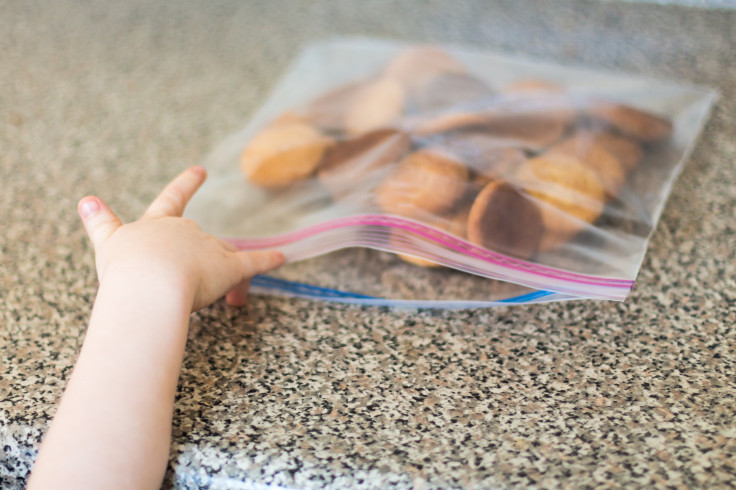Stressed Out Kids More Likely To Overeat; How Parents Train Their Kids In Emotional Eating

Kids’ stress levels are rising and so are the ubiquitous rates of childhood obesity. A new study, published in The American Journal of Clinical Nutrition, reveals a new link between a child’s stress and the amount of food they eat. Researchers believe this could be the groundwork for a new generation of emotional eaters.
Researchers studied 41 children aged 5 to 7 and their parents by simulating a stressful situation. They divided the group in two, asked the kids to color a picture, and promised they’d get a toy prize once the coloring was complete. One group was given all the colors needed to fill in the picture while the other group was forced to hand in an incomplete one, since it had been given all but one of the crayons. The researchers pretended to look for the crayon so the kids could finish coloring in the picture and claim their prize. While they did this, the kids became increasingly stressed from not being able to finish.
Both groups of children were surrounded by a variety of toys and different kinds of snacks, such as salty chips, chocolate chip cookies, carrot sticks, green grapes, and bread sticks. After another four minutes, the researchers "found" the crayon and handed it back to the stressed out kids, who by this time, had consumed between 109 and 123 calories. Meanwhile, the stress-free kids who colored in their picture without any problems ate 30 to 48 calories. The parents were in another room with researchers watching their children, and were asked if they ever used food as a reward. They found those parents who said they had used a reward system with food between the ages of 3 to 5 were more likely to have kids at risk of eating more calories.
American children are experiencing stress at higher levels than ever. Suicides among adolescents have quadrupled since the 1950s, but another form of less evident self-harm is childhood obesity. In the last 30 years, obesity among youth has more than doubled in children and quadrupled in adolescents, according to the Centers for Disease Control and Prevention.
Emotional eating happens at a person’s weakest moment, opening up a floodgate of unhealthy actions, according to the Mayo Clinic. Experts say it’s a way to suppress or soothe not only stress but other negative emotions as well, such as anger, fear, boredom, sadness, and loneliness. Emotional eating often leads to eating too much high-calorie, sweet, and fatty foods, which is what researchers witnessed the children choose in moments of stress.
Instead of allowing their little hands to reach into bags of chips and cookies, parents should teach kids to engage in conversation to express what's stressing them out. According to Kids Health, a cathartic sit down with mom or dad will do a lot more for the child in the long run than a pint of rocky road ice cream ever can.
Source: Farrow CV, Haycraft E, and Blissett JM. Teaching our children when to eat: how parental feeding practices inform the development of emotional eating—a longitudinal experimental design. The American Journal of Clinical Nutrition. 2015.



























